Home - Rhino Recovery Fund (original) (raw)
Today, fewer than 27,000 rhinos remain in Africa and Asia. Poaching for their horns and habitat loss continuously threaten the future of these distinctive giants.
But it’s not too late to save rhinos.
Of the five remaining species of rhino, three of them—black, Javan, and Sumatran rhinos—are Critically Endangered, and as recently as 2018, the northern white rhino subspecies has gone extinct in the wild.
If we act now and support efforts to protect rhinos, this remarkable species will thrive again.
Created by the Wildlife Conservation Network, the Rhino Recovery Fund (RRF) invests in the most effective organizations and projects dedicated to defending our remaining rhinos and supporting their recovery. By funding the best efforts aimed at stopping rhino poaching, ending demand for their horns, protecting rhinos’ natural habitats, and making rhinos relevant to the societies that live with them, the RRF will help restore healthy rhino populations across Africa and Asia. Read more about our strategy.
100% of every dollar donated to the RRF will be deployed to the field, ensuring that every individual makes an impact toward saving rhinos.
Our Approach
The Rhino Recovery Fund (RRF) believes with the right support, most rhino species can turn a corner and recover their populations. The projects we support work to stop the loss of rhinos in Africa and Asia, and to protect and increase all current rhino populations. Our work targets the two biggest threats to the world’s five species of rhino: the illegal rhino horn trade and rampant habitat loss.
Recent Updates
Stories
What Drives the Demand for Rhino Horn?
In the wild, rhino horns serve a variety of purposes. The horn is used for defense, but is also a...
News
Better Security is Needed to Safeguard Javan Rhinos
Shocking news that up to 26 Javan rhinos may have been poached in Indonesia's Ujung Kulon National Park, the last...
Stories
The Importance of Creating Safe Rhino Spaces
Rhinos need a lot of land. They are constantly grazing, sometimes eating up to 110 lbs a day of the...
News
Sabi Sand Nature Reserve Welcomes 32 White Rhinos
South Africa's Sabi Sand Nature Reserve recently received 32 relocated southern white rhinos, part of the largest rewilding initiative for...
News
African Parks Relocates 40 Rhinos to Munywana Conservancy
Last year, African Parks purchased the world’s largest captive southern white rhino breeding operation with the goal of planning to...
Stories
Fortifying Rhino Protections After Recent Poaching in Namibia
Namibia is home to the largest black rhino population in the world—more than 2,000 individuals—and the second largest white rhino...
News
Loisaba Conservancy Welcomes Relocated Black Rhinos
Earlier this year, RRF grantee Loisaba Community Trust successfully reintroduced 21 eastern black rhinos to Kenya's Loisaba Conservancy. These Critically...
News
The Rhino Recovery Fund is Helping Rewild 2,000 Rhinos Across Africa
Recently, Dr. Markus Hofmeyr, Director of the Rhino Recovery Fund (RRF), appeared on DW News to discuss how African Parks...
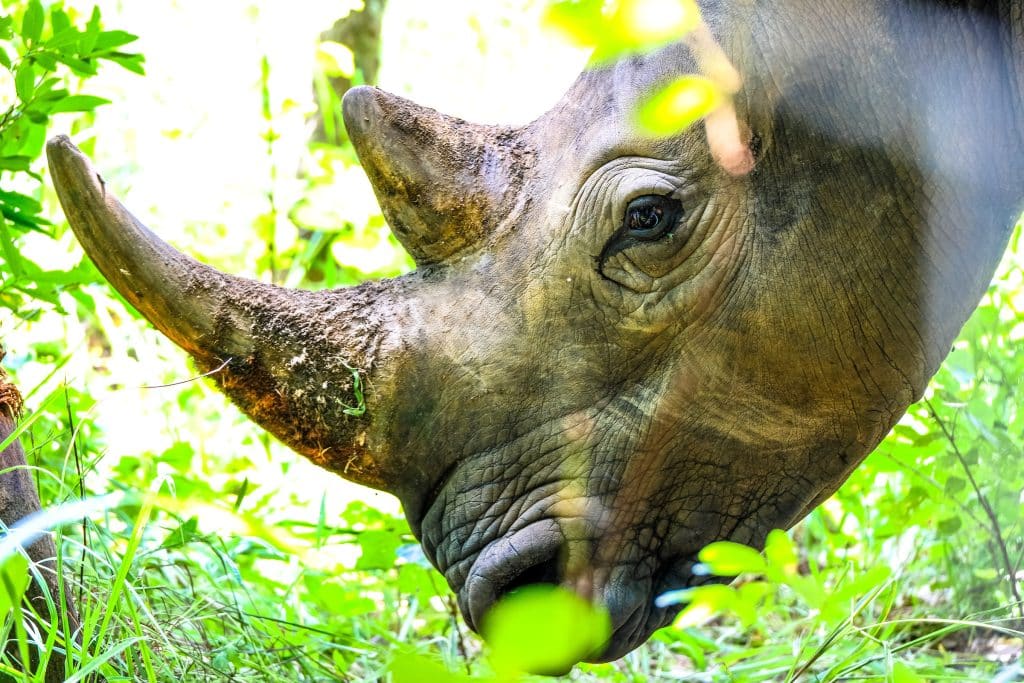
Stories
What Drives the Demand for Rhino Horn?
In the wild, rhino horns serve a variety of purposes. The horn is used for defense, but is also a...
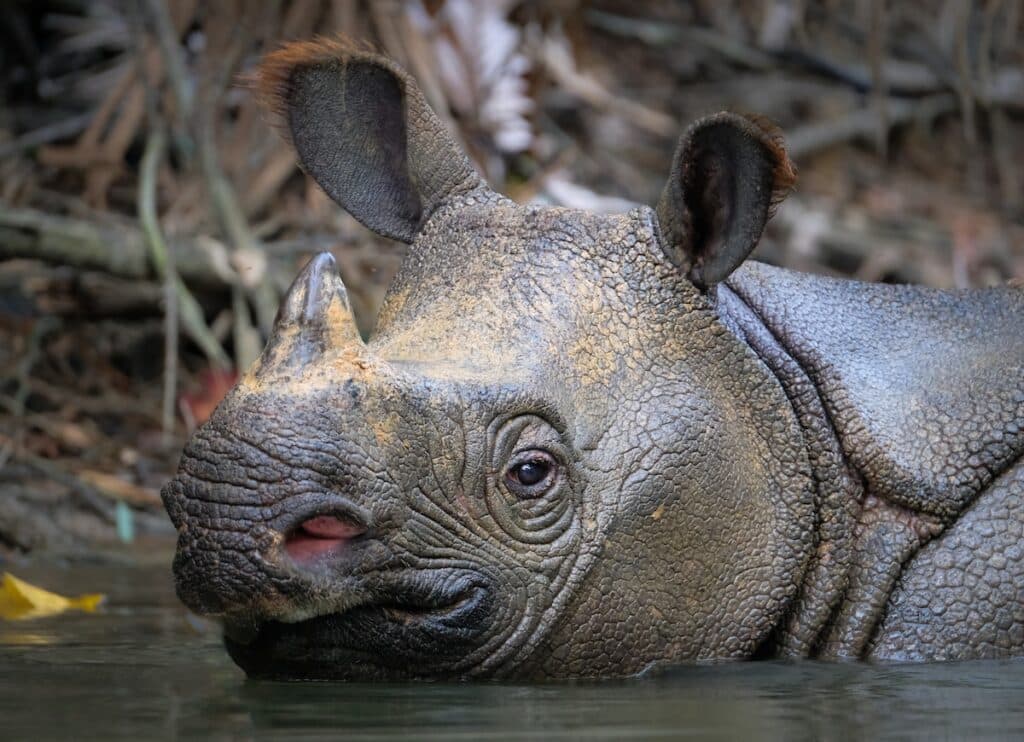
News
Better Security is Needed to Safeguard Javan Rhinos
Shocking news that up to 26 Javan rhinos may have been poached in Indonesia's Ujung Kulon National Park, the last...
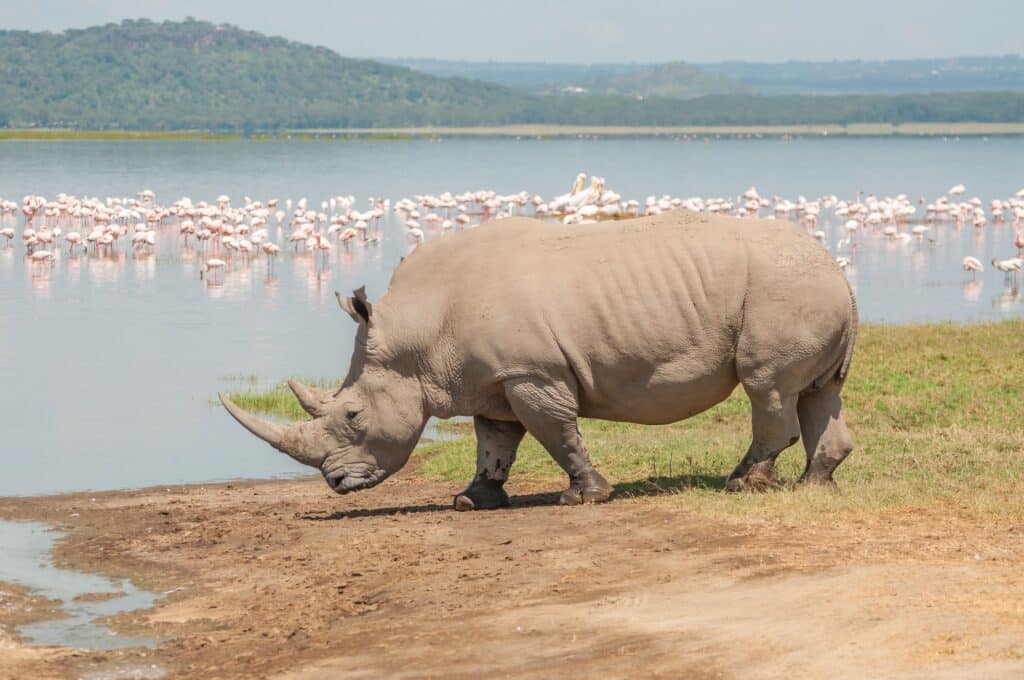
Stories
The Importance of Creating Safe Rhino Spaces
Rhinos need a lot of land. They are constantly grazing, sometimes eating up to 110 lbs a day of the...
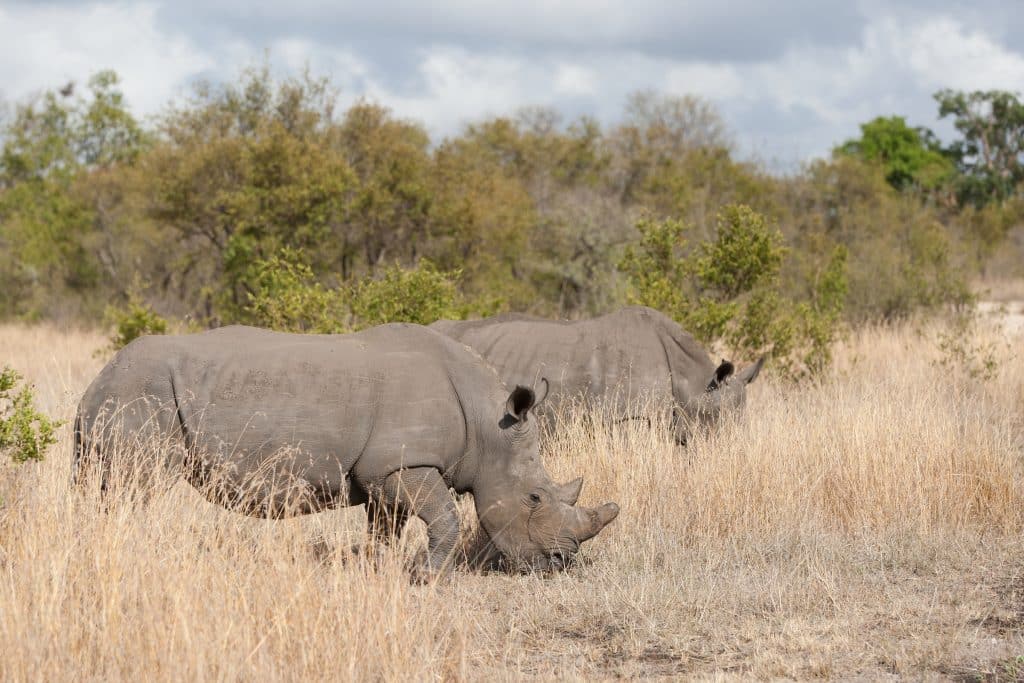
News
Sabi Sand Nature Reserve Welcomes 32 White Rhinos
South Africa's Sabi Sand Nature Reserve recently received 32 relocated southern white rhinos, part of the largest rewilding initiative for...
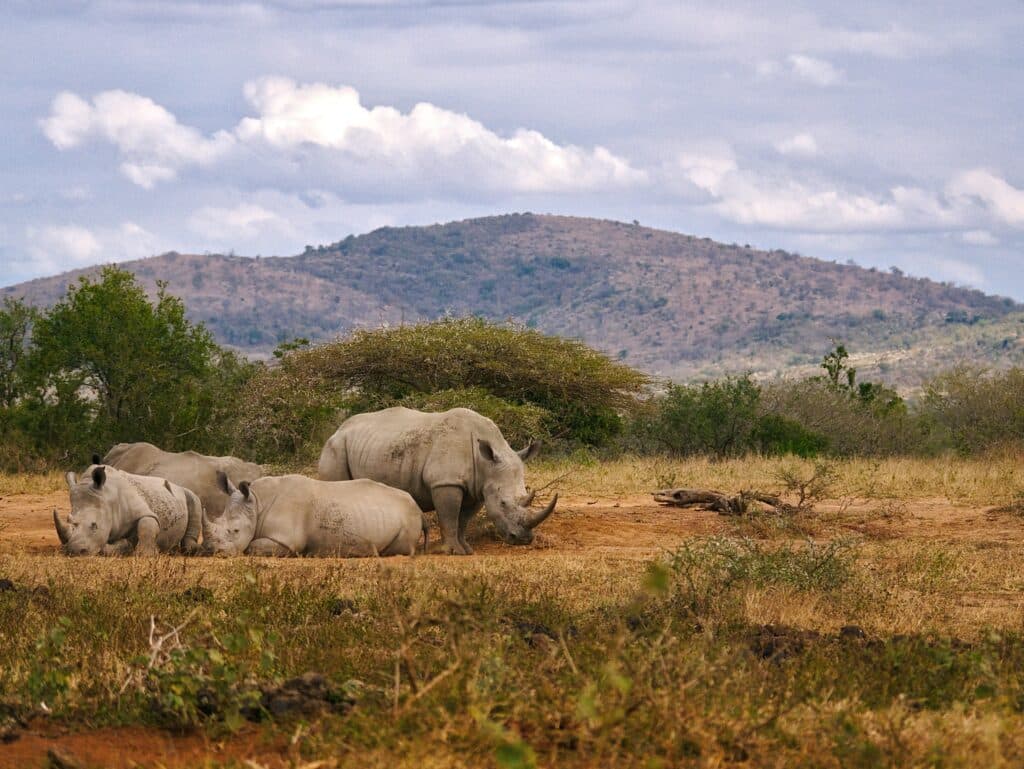
News
African Parks Relocates 40 Rhinos to Munywana Conservancy
Last year, African Parks purchased the world’s largest captive southern white rhino breeding operation with the goal of planning to...
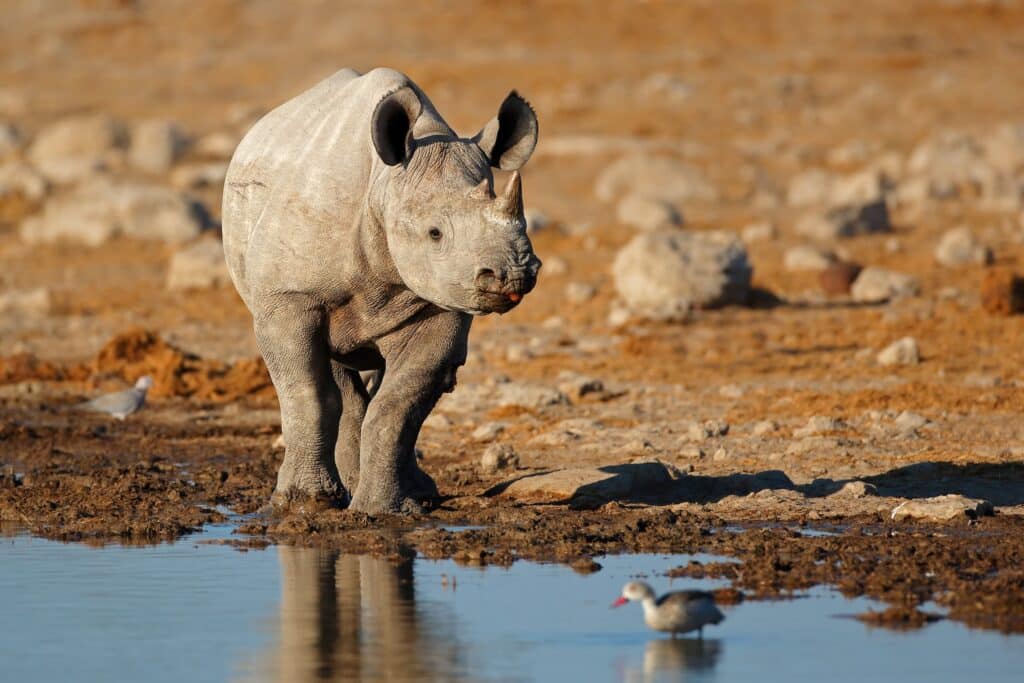
Stories
Fortifying Rhino Protections After Recent Poaching in Namibia
Namibia is home to the largest black rhino population in the world—more than 2,000 individuals—and the second largest white rhino...
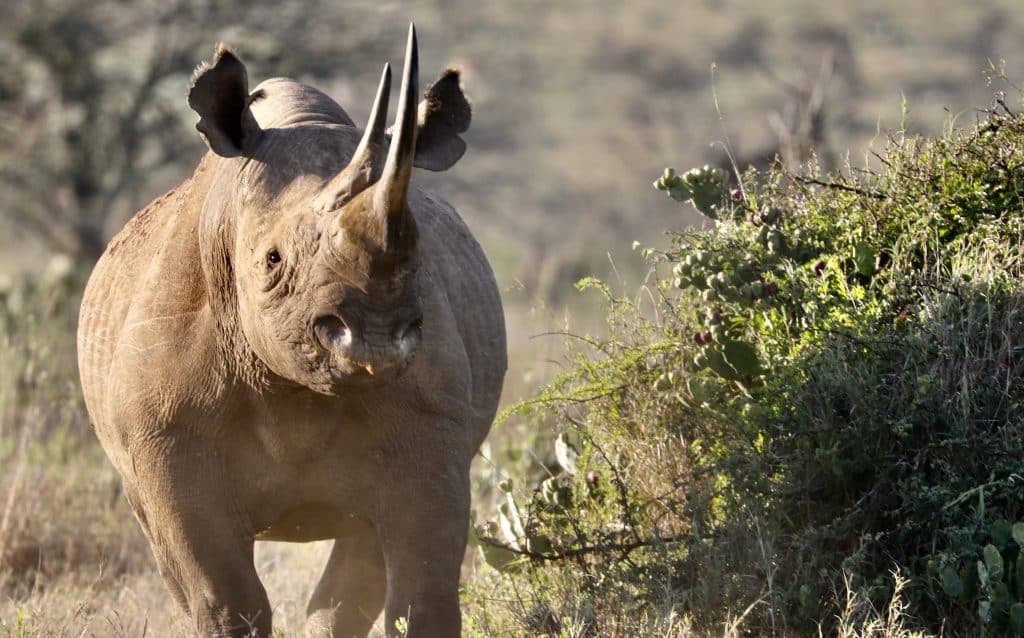
News
Loisaba Conservancy Welcomes Relocated Black Rhinos
Earlier this year, RRF grantee Loisaba Community Trust successfully reintroduced 21 eastern black rhinos to Kenya's Loisaba Conservancy. These Critically...
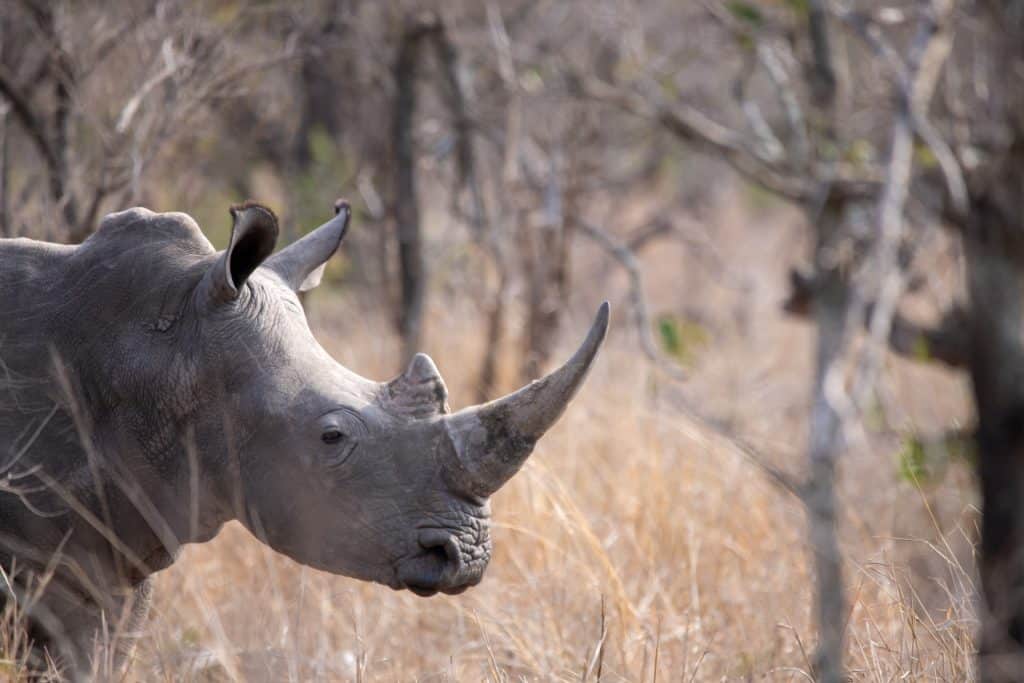
News
The Rhino Recovery Fund is Helping Rewild 2,000 Rhinos Across Africa
Recently, Dr. Markus Hofmeyr, Director of the Rhino Recovery Fund (RRF), appeared on DW News to discuss how African Parks...